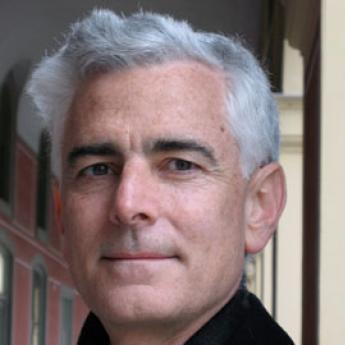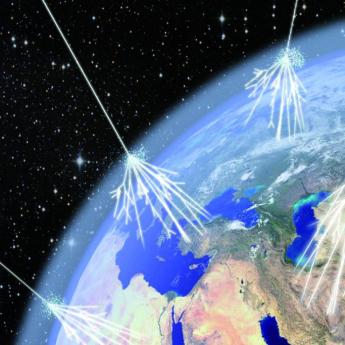Giant telescope could solve deep mysteries
Search for dark matter, dark energy, and origins of galaxies leads to Andes Mountains.
Steve Koppes
New names of ancient minerals honor scientists
Andrew Davis (left) and Lawrence Grossman pioneered study of the solar system’s chemical origins. Their new namesakes are minerals from the oldest known rocks.
Steve Koppes
Starlit memories lead scientist back to his roots
Observatory designed for Greek youth fulfills Thanasis Economou’s lifelong love of space exploration.
Steve Koppes
Astronaut takes Hubble basketball globetrotting
Century-old relic to be passed around on telescope repair mission.
Steve Koppes
Class probes nexus of science and policy, Harris School of Public Policy
Harris School challenges students to think critically across disciplines.
Sarah Galer
Sloan Digital Sky Survey Changes the Face of Astronomy
272 stars gave their lives for the photo spread on cosmic explosions that graced pages 80 and 81 of the March 2007 National Geographic.
Steve Koppes
Dark energy, explained
Coined by University of Chicago astrophysicist Michael Turner in 1998, dark energy—the force causing the universe to expand faster over time—remains one of the great mysteries of physics.
Cosmic rays, explained
Trillions upon trillions of cosmic rays hit the Earth every day. What are they?


